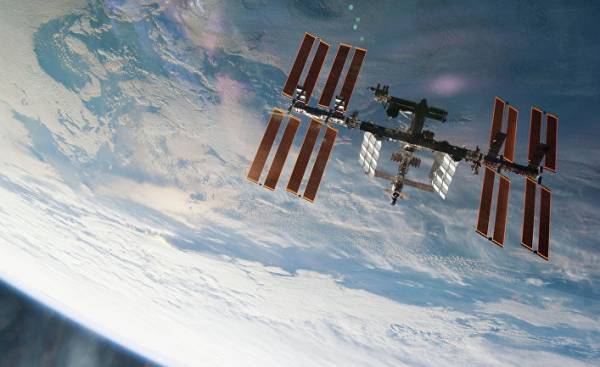
Most scientists do not see much interest in manned space missions, but such projects are increasing, both from NASA and from China and private companies.
Why climb Everest? “Because he is” — said the British climber George Mallory (George Mallory) before you hit the road. His body was found on the Himalayan slopes in 1999, 75 years after the start of the expedition to the top.
Why go to Mars? “For sport. This is the only but very important reason,” said in 1988, in an interview with Ciel & Espace Curien Hubert (Hubert Curien), Minister of science and one of the founding fathers of the European space programme.
That is, the human presence in space — a useless achievement? The foot of man stepped on the moon for the last time 45 years ago (Apollo 17). It is unlikely that he will be back there sooner than in ten years. In addition, it is possible that it will be Chinese. Funded until 2024 the international space station absorb the bulk of investments in space exploration. Thomas Sands (Thomas Pesquet) stayed there for six months, but hardly expanded our horizons: the carriages follow each other in this orbital Outpost in an atmosphere of General indifference, if the team is not national.
So what’s the point to continue this work or to go to Mars, what are called the next and almost inevitable step? For starters take a look into the past. The first man in space was Soviet hero Yuri Gagarin (1961). Kennedy’s moon race was supposed to wash away the insult. This was achieved with the help of former Nazi Wernher von Braun (Wernher von Braun) and other German scientists who were recruited by the allies for the formation of their nuclear Arsenal. Thus, sending a man in space was a byproduct of the enormous military program.
Was there a place for science? The program “Apollo”, which was deprived of three missions for financial reasons, brought back to Earth several hundred pounds of lunar rocks, but this was not its main purpose. Most scientists do not see the point in manned missions: data from the probes, robots, and space-based observatories do not go to any comparison with the bits of information that can bring the astronauts.
This stubborn opposition has existed since “Apollo.” The conquest of the moon was primarily political and symbolic importance. Confirmation by the Americans of the concept of destiny, “which was formed in the nineteenth century, John O’sullivan (John O’sullivan) as an explanation and justification of American aspirations for the conquest of the continent and other lands,” recalls the Director of the Foundation for strategic research, Xavier Pasco (Pasco Xavier) in the “New space era”. Here are all tied to identity: the people pioneer needs to explore the universe like in “Star trek”…
But how are things now? ISS was the result of the discharge, and then the collapse of the USSR. This initiative, which was designed to bring together Russia and the West, year on year is not necessary. Plays a role and geo-strategy in conjunction with the need to preserve know-how, markets and jobs in the industry.
The Central paradox today is that the global giant is in a constrained position: the US is no longer able to send into orbit the astronauts. After sending the shuttles retired in 2011, they depend on Russia. She is serving ISS with immortal “Unions”.
Bluff
This humiliating situation is only temporary. NASA is preparing a new media and a manned capsule, Orion. On the heels of the Agency comes New Space, and other figures of the digital industry. Amazon founder Jeff Bezos (Jeff Bezos) offers rockets to transport cargo for the colony on the lunar pole. Elon Musk (Elon Musk), the father of the reusable rockets SpaceX, says the flight to Mars in 2024, before NASA. Like its rival Bezos, he believes the planet “plan B” given the looming over our threats.
“In the statements of Elon musk, not without a bluff: we still don’t know how to send humans to Mars, says Francis Rocard (Francis Rocard) from the National center for scientific research. — SpaceX is not a transport ship, and no one says a word about the infrastructure that you have to create, to stay there. He hopes to contracts with the U.S. government”.
According to the French specialist, the explanation of the motivation for manned flights to be found in the report of the National research Council of the USA “research” for 2014. This document describes everything you need to create for the flight to Mars and back. In addition, there may be deeper reasons: the economic and technological implications, national security and defense, national status and international relations, education and inspiration, observation and research, the survival of humanity, the spread of human aspirations on a global scale. The output looks a bit sketchy: “Not one cause in itself not justify the continuation of manned space flight”. Even in their totality will require considerable political will to decide that they form a sufficient argument, the report said.
Released in April, the audit report NASA stresses that the costs of an expedition to Mars in 2030 would require investment of 210 billion dollars (twice as much investment in the ISS for 30 years). Europe, as today (8% of the budget of the ISS), was satisfied with the rear bench in this program.
China, in turn, gradually moving towards sending a man… on the moon. But is that enough to start the race for Mars? This would return us to the origins of the history of human presence in space: the competition, the “war minus the murder.” That is the definition of big-time sports according to Orwell.







